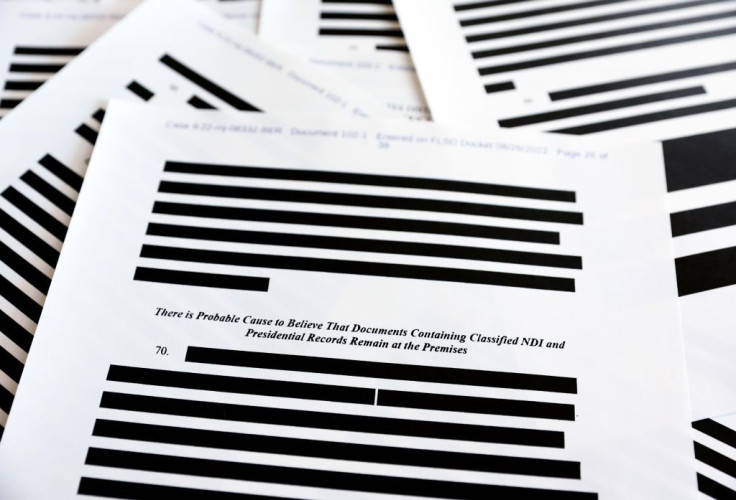A newly unsealed Federal Bureau of Investigation (FBI) document about the investigation at Donald Trump's Mar-a-Lago estate offers new details about the probe. But it also reveals clues about the arguments the former President’s legal team is planning to make.
A letter dated May 25 from one of his lawyers was attached as an exhibit to the search affidavit. It advances a broad view of Presidential power. It asserts that Trump has absolute authority to declassify whatever he wants. It also asserts that the “primary” law governing the handling of U.S. classified information doesn’t apply to the American leader himself, reported Associated Press.
The arguments were not persuasive enough to the Department of Justice (DOJ) to prevent an FBI search of Trump’s Florida property earlier this month. The affidavit in any event makes it clear that investigators are focused on more recent activity. The focus is on events after Trump left the White House and lost the legal authorities that came with it. Still, the letter suggests that a defense strategy anchored around Presidential powers might be in play as the investigation proceeds. It's a strategy that was employed during special counsel Robert Mueller’s Russia investigation when Trump actually was the U.S. President.
It doesn't come as a surprise that his lawyers might look for ways to distinguish a former President from other citizens. But some of the legal experts are uncertain about claims of such Presidential power holding weight. Oona Hathaway, a Yale Law School professor and former lawyer in the Defense Department’s general counsel’s office, said that when someone is no longer President, "they’re no longer president. That’s the reality of the matter." The expert added that when they have left office, they have left office. Hathaway noted that they can’t proclaim themselves "to not be subject to the laws that apply to everyone else.”
It’s unclear whether Trump or anyone else might face charges over the presence of classified records at the former President's property. They were found 19 months after he became a private citizen. FBI agents had recovered 11 sets of classified records during the Aug. 8 raid.
According to Stephen Collinson of CNN, reverberations over the FBI's raid will escalate this week as Trump challenges DOJ in court. U.S. intelligence agencies are also assessing whether his retention of classified documents harmed national security or not.
Meanwhile, Republicans are demanding more transparency over the unprecedented search of a former U.S. President's house. One Republican even said that Trump "did not take the national security of the United States to heart," according to ABC News.

© 2025 Latin Times. All rights reserved. Do not reproduce without permission.





